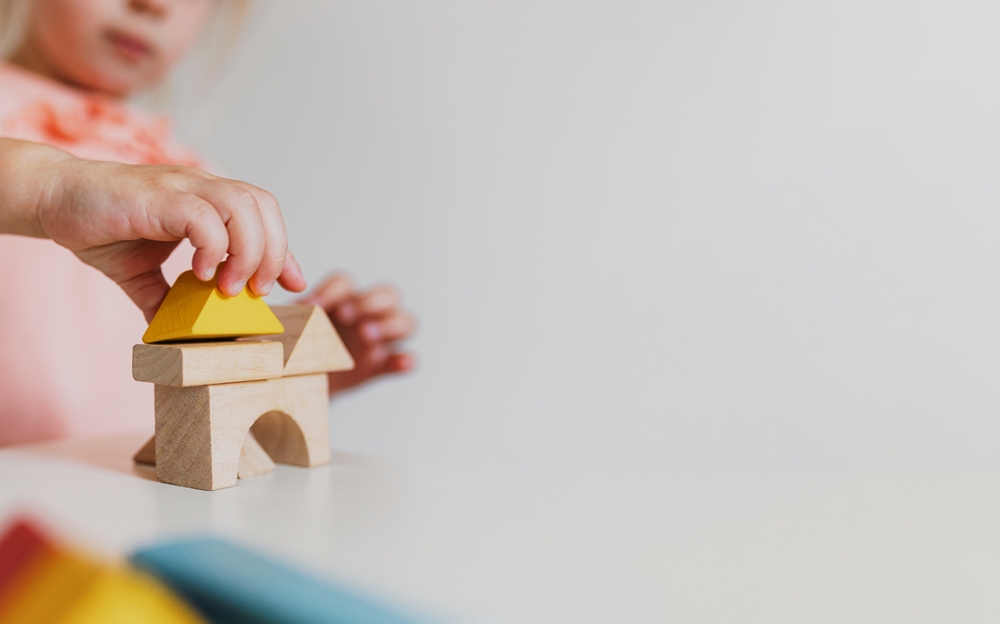The role toys play in a child’s emotional development is significant. A child can shape their personality over a toy. Whether it be a Barbie doll or a Hot Wheel’s car, toys provoke children to express themselves, which eventually leads to building their self-esteem. By understanding how different toys contribute to a child’s development, parents and caregivers can make informed choices that align with their child’s needs and stage of development.
Age-Appropriate Toys
One of the most important factors in selecting toys is ensuring they are age appropriate. Toys that are too advanced or too simple for a child’s developmental stage can be frustrating or disinteresting. For infants, toys that stimulate basic motor skills like grasping and shaking are ideal. Soft rattles or baby gyms encourage early physical development and exploration. As children grow, they benefit from toys that challenge their cognitive abilities. For toddlers, shape sorters, puzzles, and building blocks encourage problem-solving and fine motor skills. Preschoolers, on the other hand, thrive on pretend play with toys like dolls, action figures, or play kitchens, which foster creativity and social skills.
Offering age-appropriate toys supports a child’s ability to learn and explore the world around them in a safe and enjoyable way. It also provides the foundation for more complex skills as they grow older, giving children the right tools for each stage of their developmental journey.
Sensory-Stimulating Toys
Sensory stimulation is crucial for early brain development. Babies and toddlers learn by interacting with their environment, and sensory toys can help them develop important neural pathways. Toys that stimulate touch, sight, hearing, and even smell can enhance a child’s sensory experience. Brightly coloured toys, textured surfaces, and toys that make sounds, such as musical instruments or squeaky toys, engage multiple senses at once.
As children explore sensory-stimulating toys, they gain a better understanding of cause and effect. For example, shaking a rattle produces sound, or pressing a button lights up a toy. These interactions are important building blocks for cognitive development, and they also help improve fine motor skills. Moreover, sensory play helps children self-soothe and become more aware of their emotions, laying the groundwork for emotional regulation.
Social Interaction and Cooperative Play
Toys can also foster social interaction, a critical component of child development. Playing with others encourages children to learn social cues, cooperation, and problem-solving skills. Board games, team-based activities, or toys that encourage role-play (such as playsets and costumes) can help children practice taking turns, sharing, and working collaboratively with others.
Playing with others also promotes language development, as children communicate their ideas, thoughts, and feelings during cooperative play. Additionally, social toys can help children navigate emotional interactions by understanding how others might feel or react. This early socialization lays the groundwork for more complex social relationships later in life.
The Comfort Toy
For many children, comfort toys, such as a stuffed animal or a blanket, play an essential emotional role. A comfort toy offers security in times of stress or change, helping children manage their emotions when they face new or challenging situations, such as starting school, moving to a new home, or visiting the doctor.
These items often become a source of emotional regulation, teaching children how to self-soothe. This attachment to a comfort toy can also help children practice independence by providing a sense of stability and reassurance, even when parents are not immediately present. Comfort toys offer a simple yet effective way for children to cope with their emotions, supporting their emotional well-being as they grow.
Conclusion
Toys are more than just fun and games—they are crucial tools for a child’s development. Age-appropriate toys encourage growth at each stage, sensory toys stimulate the brain, social toys foster interaction, and comfort toys provide emotional support. Together, these different types of toys help nurture a child’s physical, cognitive, and emotional development, setting the stage for a well-rounded growth experience.
Supporting children is a universal value, and you can make a difference today. Consider how sponsoring an orphan in Islam can provide a child with the care, education, and emotional support they need to thrive.






0 Comments